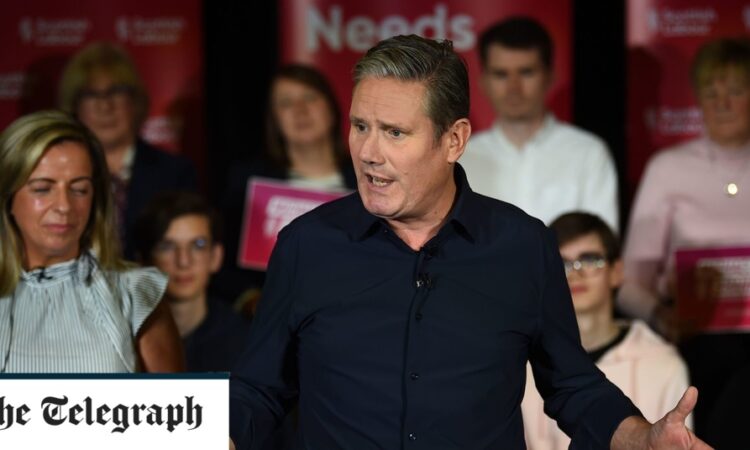
Henceforth, we will be reminded of the eurozone’s own woes as it tightens monetary and fiscal policy into the teeth of a deepening downturn, again exposing the toxic pathologies of a half-built currency union that still has no joint treasury, debt union or proper banking union to back it up.
It will revive the bitter and unresolved conflict between northern creditors and southern debtors. It will again lead to the contractionary “doom loop” policies that are hardwired into the legal structure of the treaties.
The UK’s global trade deals are gradually kicking in. It acceded to the Pacific-Latin American trade bloc (CPTPP) in July, following the Antipodean deals. Korea is ready to go. An accord with India may be agreed later in the year. The Gulf states are next in line.
Even if Sir Keir Starmer wished to rejoin the EU single market – let alone the EU itself – he would have to pull the UK out of these new trade arrangements.
That is not his intention in any case. His shadow team is forging intimate ties with the Biden White House, hoping to revive the Transatlantic bonhomie of the Clinton-Blair era. It is taking tips on a British variant of the Inflation Reduction Act.
Labour is angling for a “worker-centric” trade arrangement with the US that is aligned with the demands of US trade chief Katherine Tai, starting with a digital trade deal and progressing to a series of sectoral deals.
Contrary to much Fleet Street agitation, Sir Keir did not reveal in Canada that he would cleave piously to the EU’s regulatory acquis. He said that Labour did not wish to “rip up” environmental or food standards or worker rights, and that this creates “common ground” with the EU. He restated the blindingly obvious.
So if the economic damage from Brexit has been greatly exaggerated – though undoubtedly disruptive for small exporters and specific niche sectors – the central indictment must rest on the political damage instead.
But the war in Ukraine has demonstrated all too clearly that Nato, the G7 and the global alliance of liberal democracies are what count when push comes to shove.
The most striking fissure is between resisters and appeasers within the EU itself. Most of the Danube Basin is fraternising with Putin. Just 40pc of Slovakians think that Russia is primarily responsible for the war. A higher number think the US is the greater security risk.
Only 43pc of Austrians support the EU’s policy on Ukraine, and it is scarcely different in Italy, which is shocking when you reflect on the likely fate of the European project if Russia’s invasion had prevailed.
These attitudes are far removed from the overwhelming sentiment of the British people. Which begs the question why the British Left and the metropolitan opinion elites think it so desirable to lock the UK into a tight political union with these countries, with a shared executive, a shared legislature and a shared supreme court.
Let us assume that Labour is elected next year. Sir Keir Starmer will face a centre-Right Europe moving yet further to the Right. He will face an Italy run by Fratelli and the Lega, and a France where Marine Le Pen has climbed to 38pc approval, devouring the Republicans and pulling la Macronie into her policy orbit.
He will face a Germany where the pro-Putin AfD party is running second at 22pc, forcing the Christian Democrats to cover their flank with ever more strident positions.
He will face Hungary’s Viktor Orban, Slovakia’s Robert Fico, and probably Law and Justice in Poland. He will even face a Scandinavia where the hard-Right Sweden Democrats are the biggest party in the governing coalition.
A stable Labour Britain in this 1930s atmosphere would be a beacon to the Left-intelligentsia in America and Europe alike, and it would surely start to feel that way to those who inhabit the mental universe of BBC Newsnight or the Guardian.
Much of the pro-EU passion on the British Left has little to do with Europe itself. It is about where one stands in identity politics.
Once their own political tribe is in power, facing a prickly Right-wing Europe, we can expect a convulsive ideological pivot. Maybe the Left will become the biggest champion of Brexit after all.
This article is an extract from The Telegraph’s Economic Intelligence newsletter. Sign up here to get exclusive insight from two of the UK’s leading economic commentators – Ambrose Evans-Pritchard and Jeremy Warner – delivered direct to your inbox every Tuesday.






